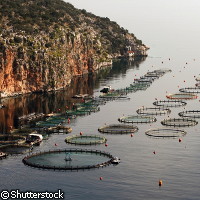People continue to overexploit fisheries
Fisheries not only provide animal protein for human consumption, they also offer direct and indirect employment for some 200 million people worldwide. But a report issued by the United Nations Food and Agriculture Organization (FAO) warns that 52% of the global fisheries stocks are fully exploited, and that 28% are being overexploited or have already collapsed. Now, an EU-funded study published in the journal PLoS Biology offers readers a look at how management practices affect the sustainability of fisheries. The results of the study are part of the ECOFUN ('Analysis of biodiversity changes on structural and functional properties of marine ecosystems under cumulative human stressors') project, funded with EUR 212,125 under the Seventh Framework Programme's (FP7's) Marie Curie Action 'International Outgoing Fellowships for Career Development'. The study investigated how effective the global fisheries management regimes are by using evaluations from 1,200 fisheries experts and assessing them together with data on the sustainability of fisheries catches. The majority of these regimes fall short of the standards established by international organisations, according to the report. The participatory and transparent transfer of scientific advice into policy helps determine fisheries' sustainability. 'Perhaps the most striking result of our survey was that not a single country in the world was consistently good with respect to all these management attributes,' explained Dr Camilo Mora of Dalhousie University in Canada and the University of California San Diego in the US. 'So which countries are doing well and which are not is a question whose answer depends on the specific attribute you are looking at.' Dr Mora went on to say that the world's fisheries are one of the most significant natural assets to mankind. 'Unfortunately, our use of the world's fisheries has been excessive and has led to the decline or collapse of many stocks,' he added. For his part, co-author Professor Boris Worm of Dalhousie University, said: 'The consequences of overexploiting the world's fisheries are a concern not only for food security and socioeconomic development but [also] for ocean ecosystems. We now recognise that overfishing can also lead to the erosion of biodiversity and ecosystem productivity.' Dr Mora pointed out that the various socioeconomic and ecological consequences related to the dropping fish stock numbers are weighing heavily on the minds of many across the globe. Various initiatives have also been put forward to make sure that 'countries improve the way they use their marine resources', he said. 'Some of these initiatives include the United Nations Code of Conduct for Responsible Fisheries, the Convention on Biological Diversity, and the Millennium Ecosystem Assessment,' Dr Mora said. 'Although these initiatives have been endorsed by most governments, a global assessment on the extent to which these ideals are actually implemented and effective remains lacking.' Despite reporting superior science and enforcement capabilities over poorer nations, wealthier countries are confronted with the negative repercussions of excessive subsidies and larger fishing capacity. The latter is due to upgrades made in their national fleets. Not only do poorer nations lack strong science and enforcement capabilities and have less fishing capacity, but they also disproportionally sold fishing rights to countries without these disadvantages, the study showed. On a global scale, foreign fleets from the EU, US, Japan, South Korea and China carry out the most fishing.



